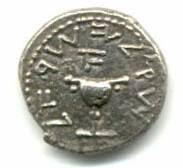An interesting example of the ideological fallacy of those who believe that "you don't need a gun the police will save you" on the high seas.
Maersk Alabama repels 2nd pirate attack with guns
Somali pirates attacked the Maersk Alabama on Wednesday for the second time in seven months and were thwarted by private guards on board the U.S.-flagged ship who fired off guns and a high-decibel noise device.
. . .
Pirates hijacked the Maersk Alabama last April and took ship captain Richard Phillips hostage, holding him at gunpoint in a lifeboat for five days. Navy SEAL sharpshooters freed Phillips while killing three pirates in a daring nighttime attack.
Four suspected pirates in a skiff attacked the ship again on Wednesday around 6:30 a.m. local time, firing on the ship with automatic weapons from about 300 yards (meters) away, a statement from the U.S. Fifth Fleet in Bahrain said.
An on-board security team repelled the attack by using evasive maneuvers, small-arms fire and a Long Range Acoustic Device, which can beam earsplitting alarm tones, the fleet said.
The difference in reaction to this successful repelling of pirates by force of arms certainly highlights the tension between the let the navy/police handle it folks and the self-reliant types:
Vice Adm. Bill Gortney of the U.S. Naval Forces Central Command, said the Maersk Alabama had followed the maritime industry's "best practices" in having a security team on board.An interesting parallel, after all its a big ocean out there and the Navy while it does a fantastic job (as was seen in its freeing of the Maersk Alabama in the first encounter) it can't be everywhere at once, and like in America when seconds count the police are at best minutes away - or even hours by sea to get a naval ship in position to intercept an attack.
"This is a great example of how merchant mariners can take proactive action to prevent being attacked and why we recommend that ships follow industry best practices if they're in high-risk areas," Gortney said in a statement.
However, Roger Middleton, a piracy expert at the London-based think tank Chatham House, said the international maritime community was still "solidly against" armed guards aboard vessels at sea, but that American ships have taken a different line than the rest of the international community.
"Shipping companies are still pretty much overwhelmingly opposed to the idea of armed guards," Middleton said. "Lots of private security companies employee people who don't have maritime experience. Also, there's the idea that it's the responsibility of states and navies to provide security. I would think it's a step backward if we start privatizing security of the shipping trade."
Unless the Navy forms and orders merchantmen into convoys through the pirate infested waters they will not be able to guarantee their security and leaves the unarmed ships open to attack.
You'll note above that the American admiral on the scene gets it.
Ceratinly the deterrence effect of an armed civillian ship worked:
The owners of the Maersk Alabama have spent a considerable amount of money since the April hijacking to make the vessel pirate-proof, Murphy said, including structural features and safety equipment. The most dramatic change is what he called a security force of "highly trained ex-military personnel."Yeah, mess with armed and prepared Americans rather than squishy others and you're probably not going to like what happens dear pirates.
"Somali pirates understand one thing and only one thing, and that's force," said Capt. Joseph Murphy, who teaches maritime security at the school. "They analyze risk very carefully, and when the risk is too high they are going to step back. They are not going to jeopardize themselves."
The wife of the Maersk Alabama's captain, Paul Rochford, told WBZ-AM radio in Boston that she was "really happy" there were weapons on board for this attack.
"It probably surprised the pirates. They were probably shocked," Kimberly Rochford. "I'm really happy at least it didn't turn out like the last time."
A self-proclaimed pirate told The Associated Press from the Somali pirate town of Haradhere that colleagues out at sea had called around 9 a.m. — 2 1/2 hours after the attack.
"They told us that they got in trouble with an American ship, then we lost them. We have been trying to locate them since," said a self-described pirate who gave his name as Abdi Nor.

No comments:
Post a Comment